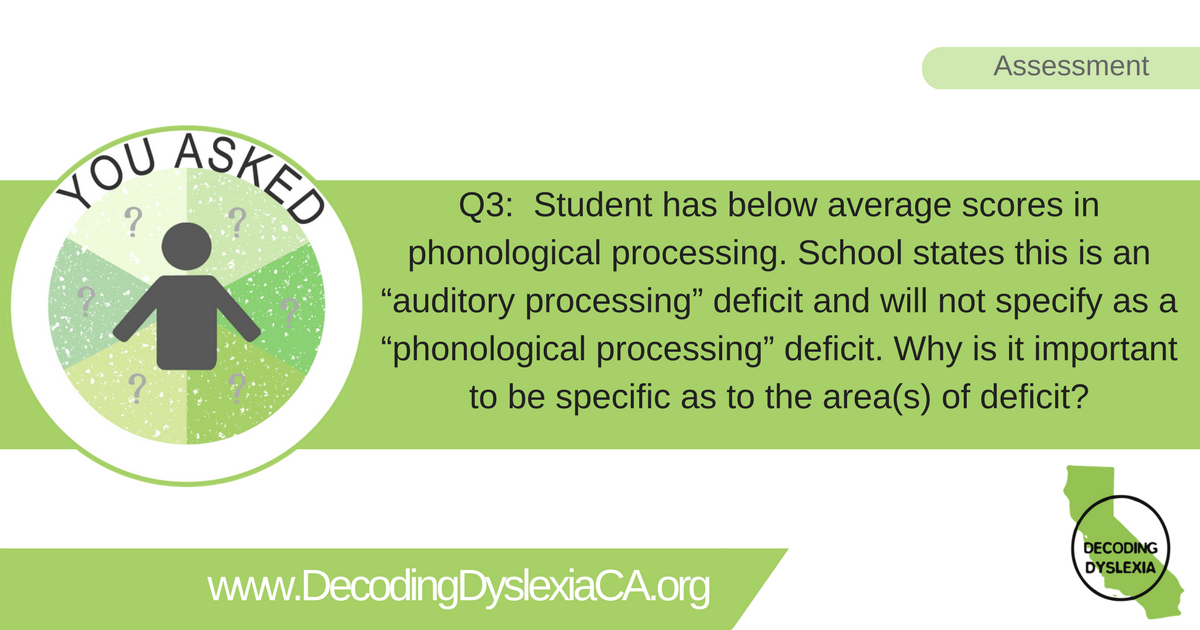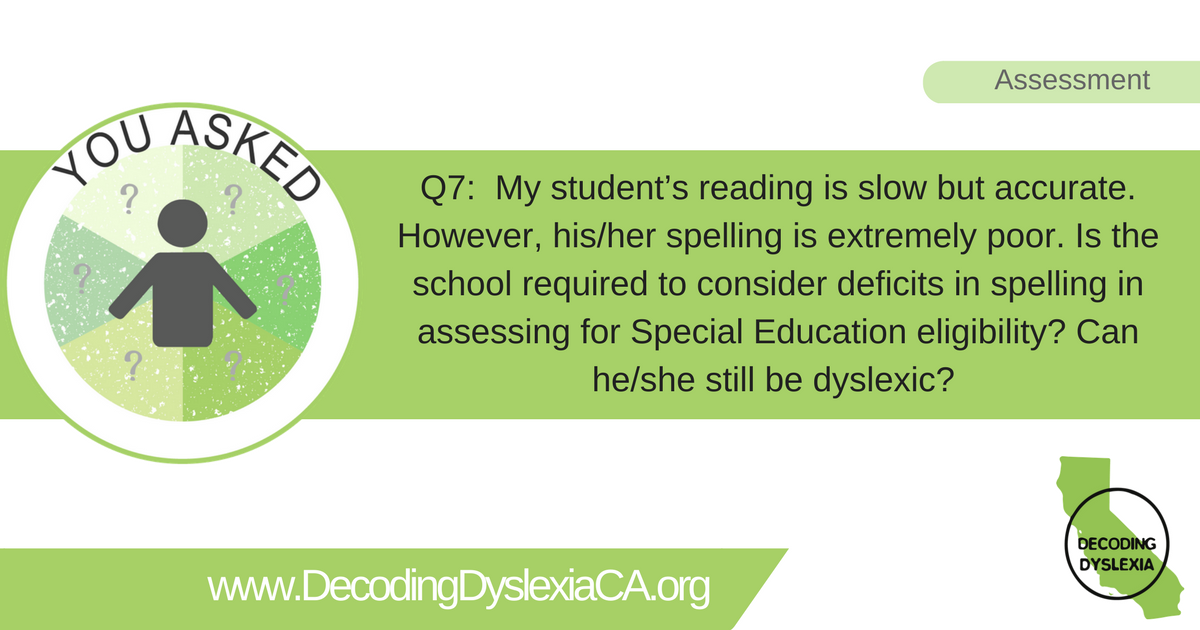Download a PDF version of this You Asked question and answer HERE.
Q3: Student has below average scores in phonological processing. School states this is an “auditory processing” deficit and will not specify as a “phonological processing” deficit. Why is it important to be specific as to the area(s) of deficit?
Auditory processing is an extremely broad umbrella term that includes phonological processing. A student might have both a significant strength (e.g., listening comprehension) and a significant weakness (e.g., phoneme segmentation) under the broad category of auditory processing. Therefore, listing the broad term, auditory processing, as the processing deficit underlying a learning disability is not specific enough to inform choices for appropriate intervention to remediate the academic achievement deficits that are the result of the learning disability.
Phonological processing, under the category of auditory processing, can be divided into three components: phonological memory, phonological awareness, and naming speed (Wagner, Torgesen, Rashotte, 1999).
In summary, the broad term, auditory processing, is not precise enough to inform planning of appropriate recommendations for instructional strategies to remediate the academic skill deficits that are the result of a deficit in any one or more of the components of phonological processing: phonological awareness, phonological memory, or naming speed. Therefore, use of the broad term, auditory processing, to label a measured deficit in phonological processing, is not in compliance with CA Education code section 56334.
(Source: Nancy Cushen White, Ed.D. Clinical Professor—Pediatrics-Adolescent and Young Adult Medicine-UCSF /UCSF Dyslexia Research Center)
For more YOU ASKED questions and answers click HERE


